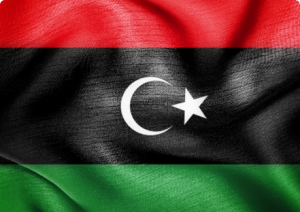LIBYA’S interim rulers had their first serious wobble on January 21st when a crowd of several thousand massed outside a government building in Benghazi, the country’s second city, where members of the National Transitional Council were meeting. They hurled grenades and Molotov cocktails, yelled angry slogans and demanded more support for rebel fighters now out of a job.
Their discontent had been building for some time, particularly in the east of the country, which fell swiftly to rebel forces early last year. As war raged further west until the fall of Tripoli, the capital, in August and the death of Colonel Muammar Qaddafi in October, Benghazians felt increasingly neglected.
The most recent uproar came after more than a month of nightly protests. Pictures of the once-popular Mustafa Abdel Jalil, who led the rebels in opposition, have been burned in the streets; other leaders have been vilified for their links with the former regime. Protesters complain that the city, marginalised under Qaddafi, has seen few improvements since his fall from power. The judicial system is still suspended, schools have only recently reopened, official handouts for the poor are not yet restored, and promised medical treatment for fighters wounded in the uprising last year has yet to materialise.
The deputy head of the council, Abdel Hafiz Ghoga, whom many dislike for having once led the lawyers’ union under Qaddafi, resigned after the latest protests. Mr Abdel Jalil later pleaded for patience during a television interview.
The authorities face formidable difficulties in bringing stability, prosperity and justice to the country as it emerges from 42 years of brutal and divisive rule. The greatest test, officials often say, is finding jobs for tens of thousands of fighters hailed as heroes when, with NATO’s backing, they defeated Qaddafi’s troops. Some have returned to work or university, but many were unemployed and remain on the streets, in mismatched uniforms and carrying light weapons. The defence and interior ministries have declared they will employ 25,000 men each, but it will take time.
Meanwhile, the UN reports the secret detention of thousands of Qaddafi loyalists. Clashes have erupted intermittently between tribal militias, and reports of violent crimes such as kidnapping and carjacking by uniformed men with guns are on the increase. The limited police force has difficulty dealing with criminals who are more numerous and organised, not to mention far better armed. Remnants of old regime forces have also been increasingly active.
Progress in Libya is scrappy and slow but there are nonetheless grounds for optimism. The rebel fighters on the streets are for the most part co-ordinating with the defence and interior ministries. They patrol residential districts and guard public buildings. Observers believe they are strong enough to deal with a low-level insurgency if one were to spring up. The proliferation of heavy weapons, and absence of a plan to collect them, is worrying but artillery is only rarely now seen on the streets.
Clashes are, for the moment, little more than unpleasant, but isolated, incidents. Shops and cafés open late in city centres and, at least in the urban coastal areas, people are still largely positive about their lot.
Ministers often appear live on television and take questions by telephone. Minutes of cabinet meetings, which happen fairly regularly, are made public. An election commission recently produced a draft law for a poll set for the summer. The proposal was wildly unpopular and the commission is now reviewing over 10,000 comments from civil-society groups and the general public sent by e-mail. Libyans appear to enjoy having their say.
(Source: The Economist)





